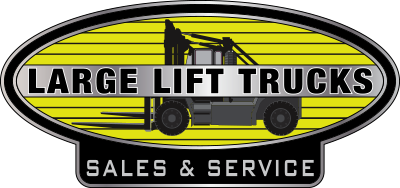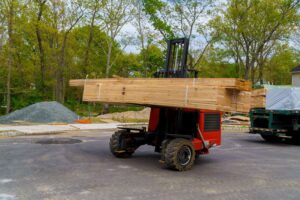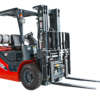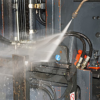Important Factors To Consider When Your Lift Truck Masts Are Not Moving
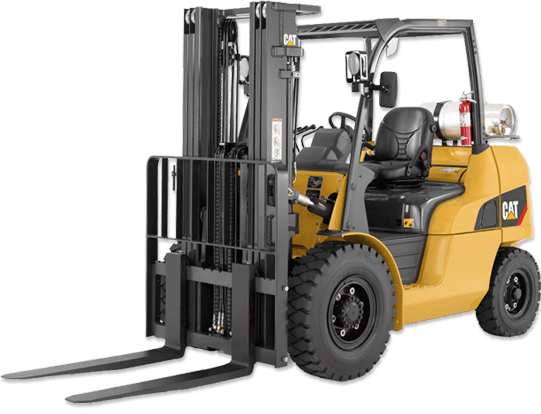
Do you face problems like jam in lift truck mast when it is working at its topmost level? There might also be the case that lift mechanism reduces and mixes if you start moving it upwards or downwards. This post is a must read for you if you observe the lift truck mast elevate or lower mistakenly. Luckily, there are a couple of things you can do to investigate and fix issues in your forklift mast. As the topmost provider of lift truck rental service, we have listed four crucial factors to consider if your lift truck masts do not move.
Here is the list of factors:
#1 You must inspect the hydraulic fluid of your lift truck:
One of the major issues with the lift truck’s mast is the problem of hydraulic fluid and oil. If the levels of hydraulic fluid are less, it will be difficult for your forklift for creating sufficient power. It will lack the necessary power to elevate the mast and lift substantial loads. Therefore, the initial step in inspecting the problems of forklift mast must be to examine the hydraulic fluid level.
At times, it’s as easy like topping the forklift with some extra hydraulic liquid. However, some forklift owners may come across regular liquid breaks in a hose or in one of the hydraulic cylinders. It may be a basic leak in a hose or pump, you might have the capacity to cover it yourself. However, if not have some time prior to getting the repair work by an expert. It’s always better to carry out it’s servicing by a trained forklift repair specialist. We offer a wide range of large forklift rental services that you can select as per your requirement.
#2 You must also examine your hydraulic system filters:
Another reason for the lift truck mast failing amidst the lifting is in the filters of your hydraulic system. It is essential to regularly examine and clean your hydraulic system and pump filters, eliminating any dirt that can eventually hinder the proper functioning. If debris blocks a filter, it averts the right flow of liquid, causing overheating in the lift carriage. It is highly recommended to hire the trained professional to inspect the functioning of your filter to confirm there isn’t any risk ahead.
#3 You must take appropriate care of your forklift mast channels:
Another reason for lift truck mast problems can be because of the channels. Especially in a two or three-phase mast assemblies, the channels can load up with the debris, causing erosion, wear, and making your hydraulic system to work harder. It is highly recommended to make the lift truck mast channels free from dirt, also grease them for a smoother lift. We supply new and used forklift for sale that you can select as per your requirement and budget.
#4 You must avoid putting too much weight on the lift truck:
Though it might be unusual, however despite everything it happens – certain forklift operators encounter lifting and mast spearing issues since they’re putting excessive weight onto their lift trucks or utilizing them for something they’re not planned. This generally occurs with inappropriately skilled operators or when an organization purchases a used forklift from an unreliable vendor who may exaggerate the forklift’s load capability.
Wrapping Up:
So, factors, as mentioned above, are essential to consider if you notice the lift truck masts are unable to move. If you are looking forward to buying the new forklift, then feel free to contact us, and we will assist you further in selecting the right lift truck as per your needs.
FAQ about Lift Truck Masts
Q1: How do temperature changes affect lift truck mast operation?
Extreme temperatures can affect hydraulic fluid viscosity, impacting mast movement. In cold weather, the fluid can thicken, while in hot weather, it can thin out.
Q2: What should I do if the lift truck’s mast moves slowly or erratically?
Slow or erratic movement can be due to air trapped in the hydraulic system. Bleeding the system to remove air bubbles may resolve the issue.
Q3: Could electrical issues impact the mast movement?
Yes, electrical problems such as faulty wiring or a dead battery can affect the controls and sensors that operate the mast.
Q4: What should I check first if my lift truck mast is not moving?
First, check the hydraulic fluid levels. Low hydraulic fluid can cause the mast to stop moving.
Q5: Could hydraulic system issues affect mast movement?
Yes, inspect the hydraulic pump and hoses for leaks or damage, as these can significantly impact mast performance.
Q6: Can overloading the lift truck cause mast problems?
Overloading can strain the hydraulic system and mast components, potentially leading to malfunction or failure. Always operate within the recommended load capacity.
